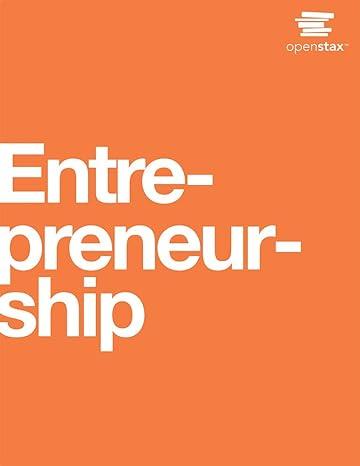Refer to the case questions in Entrepreneurial Pathways. Select one of the framework tools discussed in this
Question:
Refer to the case questions in Entrepreneurial Pathways. Select one of the framework tools discussed in this section and apply that framework to your idea.
Entrepreneurial Pathways
By the end of this section, you will be able to:
• Understand how venture opportunities present different pathways to entrepreneurship
• Describe methods for finding your personal path to entrepreneurship
When you think of which career pathway (as in Figure 2.21) to follow, you might not think of being an entrepreneur in the same way that you would think of being a nurse, an attorney, or an engineer—but you should. Entrepreneurship offers you the chance to express your creativity and business acumen and to control your destiny. Conversely, if you were to earn an engineering degree, your employment options could involve working for an engineering company. Your job would be relatively secure and structured, with a paycheck and some perks. Or you could leverage your engineering degree into an entrepreneurial venture.
The entrepreneurial journey includes multiple experiences and decisions that will help you reach your entrepreneurial goals. For example, some individuals inherit a family business. If your choice career proves not so ideal or available as planned, entrepreneurship may be an attractive option. However, a growing number of people intentionally choose business ownership as a vehicle for fulfilling their career goals and interests. If you reach this crossroads in selecting your ideal vocation, how do you successfully navigate the entrepreneurial pathway as a career option? Your entrepreneurial journey might travel several paths, each presenting obstacles, twists, and turns before you reach your destination. Many of today’s entrepreneurs have followed different pathways—sometimes conventional, sometimes not—that have led to the creation of various business structures matched to each entrepreneur’s spirit. These businesses include established or adapted business models that met a need, solved a problem, or developed a social solution.
Regardless of the type of entrepreneurial venture you may choose, many pathways can take you to your goal. Venture types differ in their missions and visions. Their purposes range from earning income (for profit) to meeting a community need through tax-exempt status (nonprofit) to solving a social or environmental problem (social enterprise) to combinations of these types (hybrid). Business Structure Options: Legal, Tax, and Risk Issues examines each type in depth.
Figure 2.21
For many established businesses, the pathway is not always as clear as the entrepreneurial process suggests. This is because entrepreneurs are opportunists, leaders, and initiators: They take calculated risks to create or adapt something to solve a problem or create a response for potential financial gain or intrinsic value. The reality is that these situations or opportunities do not always occur in a logical sequence or order. Instead, entrepreneurial-focused individuals might encounter opportunities, offers, or options that spark a new venture.
Step by Step Answer:






